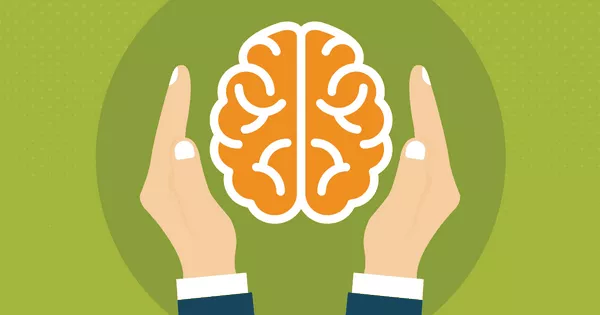Mental illness is a complex and multifaceted issue that affects millions of people worldwide. It encompasses a wide range of conditions, including depression, anxiety, bipolar disorder, schizophrenia, and personality disorders, among others. Understanding how a mentally ill person behaves is crucial for fostering empathy, reducing stigma, and providing appropriate support. This article explores the behavioral manifestations of mental illness, the factors influencing these behaviors, and the importance of compassionate care.
Understanding Mental Illness
What is Mental Illness?
Mental illness refers to a broad spectrum of psychological conditions that affect an individual’s thinking, emotions, and behavior. These conditions can range from mild to severe and may interfere with a person’s ability to function in daily life. Mental illnesses are often caused by a combination of genetic, biological, environmental, and psychological factors.
The Stigma Surrounding Mental Illness
Despite advances in mental health awareness, stigma remains a significant barrier to understanding and acceptance. Misconceptions about mental illness can lead to discrimination, social isolation, and inadequate care. It is essential to approach the topic with sensitivity and a commitment to dispelling myths.
Common Behavioral Manifestations of Mental Illness
Emotional Instability
One of the most noticeable behaviors in individuals with mental illness is emotional instability. This can manifest as sudden mood swings, intense feelings of sadness or euphoria, and difficulty regulating emotions. For example, a person with bipolar disorder may experience periods of extreme mania followed by deep depression.
Social Withdrawal
Many mentally ill individuals exhibit social withdrawal, avoiding interactions with friends, family, and colleagues. This behavior is often a coping mechanism to protect themselves from perceived judgment or rejection. Social withdrawal can exacerbate feelings of loneliness and isolation, further impacting mental health.
Changes in Sleep Patterns
Sleep disturbances are common among those with mental illness. Insomnia, hypersomnia (excessive sleeping), and irregular sleep patterns can all be indicators of underlying psychological issues. For instance, someone with depression may struggle to get out of bed, while a person with anxiety may find it difficult to fall asleep.
Cognitive Impairments
Mental illness can also affect cognitive functions, leading to difficulties with concentration, memory, and decision-making. A person with schizophrenia, for example, may experience disorganized thinking and struggle to maintain coherent conversations.
Risky or Impulsive Behaviors
Some mentally ill individuals engage in risky or impulsive behaviors, such as substance abuse, reckless driving, or self-harm. These actions are often attempts to cope with overwhelming emotions or to escape from reality. It is crucial to recognize these behaviors as cries for help rather than mere recklessness.
Physical Symptoms
Mental illness can also manifest physically, with symptoms such as headaches, stomachaches, and chronic pain. These physical complaints are often linked to psychological distress and should not be dismissed without consideration of their mental health context.
Factors Influencing Behavior in Mentally Ill Individuals
Severity of the Illness
The severity of a mental illness plays a significant role in determining behavior. Mild conditions may result in subtle changes, while severe illnesses can lead to more pronounced and disruptive behaviors. Early intervention and treatment can help manage symptoms and improve quality of life.
Co-occurring Disorders
Many individuals with mental illness also experience co-occurring disorders, such as substance abuse or eating disorders. These additional conditions can complicate behavior and make treatment more challenging. A comprehensive approach that addresses all aspects of a person’s health is essential.
Environmental Triggers
Environmental factors, such as stress, trauma, and social support, can influence the behavior of mentally ill individuals. A supportive and understanding environment can mitigate negative behaviors, while a stressful or hostile environment may exacerbate symptoms.
Medication and Treatment
The type and effectiveness of treatment can also impact behavior. Medications, therapy, and other interventions can help stabilize mood, improve cognitive function, and reduce harmful behaviors. However, side effects or inadequate treatment can sometimes lead to adverse outcomes.
The Importance of Compassionate Care
Reducing Stigma
Compassionate care begins with reducing stigma and promoting understanding. Educating the public about mental illness and encouraging open conversations can help create a more supportive environment for those affected.
Providing Support
Support from family, friends, and mental health professionals is crucial for individuals with mental illness. Offering a listening ear, encouraging treatment, and being patient can make a significant difference in a person’s recovery journey.
Encouraging Treatment
Encouraging and facilitating access to treatment is vital. This may include helping a person find a therapist, accompanying them to appointments, or assisting with medication management. Early and consistent treatment can lead to better outcomes.
Promoting Self-Care
Promoting self-care practices, such as regular exercise, healthy eating, and mindfulness, can help individuals manage their symptoms and improve their overall well-being. Self-care is an essential component of a holistic approach to mental health.
Conclusion
Understanding how a mentally ill person behaves is a critical step toward fostering empathy and providing effective support. Mental illness manifests in various ways, from emotional instability and social withdrawal to cognitive impairments and risky behaviors. Factors such as the severity of the illness, co-occurring disorders, environmental triggers, and treatment effectiveness all play a role in shaping these behaviors.
Compassionate care, rooted in reducing stigma, providing support, encouraging treatment, and promoting self-care, is essential for helping individuals with mental illness lead fulfilling lives. By approaching mental health with sensitivity and understanding, we can create a more inclusive and supportive society for everyone.
In conclusion, mental illness is a complex and deeply personal experience. By educating ourselves and others, we can break down barriers, offer meaningful support, and contribute to the well-being of those affected by mental health conditions.
You Might Be Interested In:

